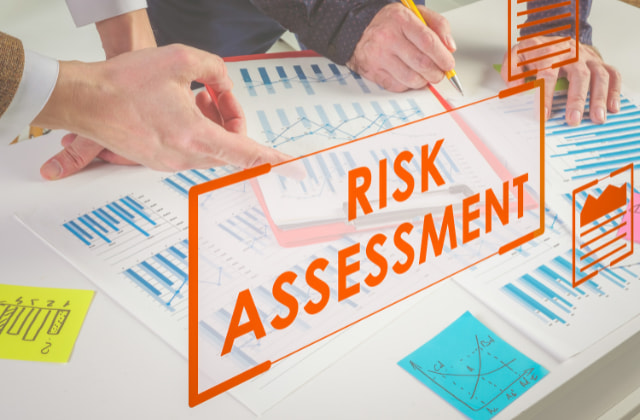The Rising Importance of Risk Management in Health and Safety
The Rising Importance of Risk Management in Health and Safety
Blog Article
Checking out the Importance of Risk Management for Effective Decision-Making Approaches
In the elaborate globe of company, Risk Management emerges as an essential element in the decision-making procedure. The capability to recognize prospective threats and chances, and plan as necessary, can lead to the difference between success and failing. With devices such as SWOT and PESTEL, organizations are furnished to make enlightened choices, fostering strength and flexibility in an ever-changing environment. Wondering exactly how this works? Allow's unbox the dynamics even more.
Comprehending the Idea of Risk Management
Risk Management, a critical element in decision-making, is often misinterpreted or oversimplified. Risk Management includes regimented and organized techniques, utilizing data and insightful evaluations. From economic uncertainties, lawful liabilities, calculated Management errors, to mishaps and all-natural catastrophes, it resolves different dangers - importance of risk management.
The Duty of Risk Management in Decision-Making Processes
In the world of critical preparation and company operations, Risk Management plays an important duty in decision-making procedures. Risk Management therefore becomes a vital device in decision-making, assisting leaders to make informed choices based on a comprehensive understanding of the threats included. Risk Management serves as an essential component in the decision-making procedures of any type of organization.

Just How Risk Management Enhances Strategic Preparation
In the context of calculated planning, Risk Management plays a pivotal duty. Initiating with the identification of possible dangers, it further expands to the application of Risk reduction measures. The function of Risk Management is not static yet dynamic, as it requires continuous monitoring and adjusting of approaches.
Determining Possible Dangers

Applying Risk Reduction
Risk mitigation approaches can range from Risk avoidance, Risk transfer, to risk decrease. Each technique needs to be tailored to the details Risk, considering its potential effect and the see company's Risk resistance. Efficient Risk mitigation calls for a deep understanding of the Risk landscape and the possible effect of each Risk.
Monitoring and Changing Strategies
Though Risk reduction is a critical action in calculated preparation, continual tracking and adjustment of these techniques is just as crucial. This recurring process enables companies to identify brand-new threats and reassess existing ones, making sure the applied techniques stay reliable in the ever-changing company atmosphere. It additionally offers a chance to review the success of the Risk Management steps, enabling changes to be made where necessary, further enhancing calculated preparation. Reliable surveillance and adjustment require the use of analytics and crucial efficiency indications (KPIs) to determine efficiency. These tools offer important data-driven understandings that can notify calculated decision-making. For that reason, tracking and changing Risk Management techniques is an important part for boosting a company's strength and critical preparation.
Instance Researches: Effective Risk Management and Decision-Making
Worldwide of business and money, successful Risk Management and decision-making typically function as the pillars of flourishing enterprises. One such entity is an international oil company that reduced economic loss by hedging against varying oil costs. In one more circumstances, a technology startup grew by identifying and approving high-risk, high-reward techniques in an unpredictable market. A worldwide financial institution, confronted with governing unpredictabilities, efficiently browsed the situation via positive Risk analysis and dynamic decision-making. These instances highlight the value of sharp Risk Management in decision-making procedures. It is not the absence of Risk, however the Management of it, that usually sets apart successful firms from unsuccessful ones. These instances emphasize the important role of Risk Management in look at this website critical decision-making. importance of risk management.
Devices and Strategies for Efficient Risk Management
These tools, such as Risk signs up and warmth maps, aid in identifying and assessing potential risks. Risk feedback approaches, a vital part of Risk Management, include approving, preventing, transferring, or mitigating risks. With these strategies and devices, decision-makers can browse the complicated landscape of Risk Management, consequently assisting in notified and effective decision-making.
Future Fads in Risk Management and Decision-Making Techniques
As we discover the huge landscape of Risk Management, it comes to be obvious that the tools and methods used today will continue to progress. The principle of Risk culture, where every member of an organization is mindful and entailed in Risk Management, will obtain much more importance. These fads herald a more inclusive and positive strategy in the direction of Risk Management and decision-making.
Verdict

Risk Management hence comes to be a crucial tool in decision-making, helping leaders to make enlightened options based on an extensive understanding of the risks entailed. Risk reduction approaches can range from see this website Risk evasion, Risk transfer, to take the chance of reduction (importance of risk management). Effective Risk mitigation calls for a deep understanding of the Risk landscape and the possible effect of each Risk. Risk feedback techniques, an essential part of Risk Management, include approving, preventing, transferring, or mitigating dangers. The concept of Risk society, where every member of a company is conscious and entailed in Risk Management, will gain extra importance
Report this page